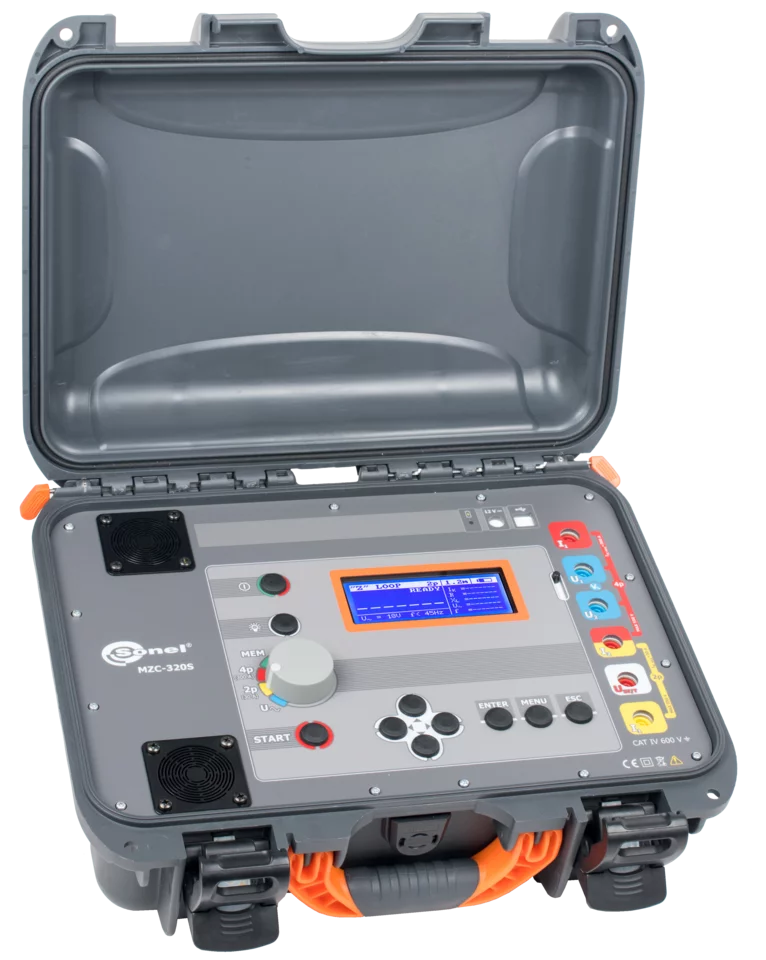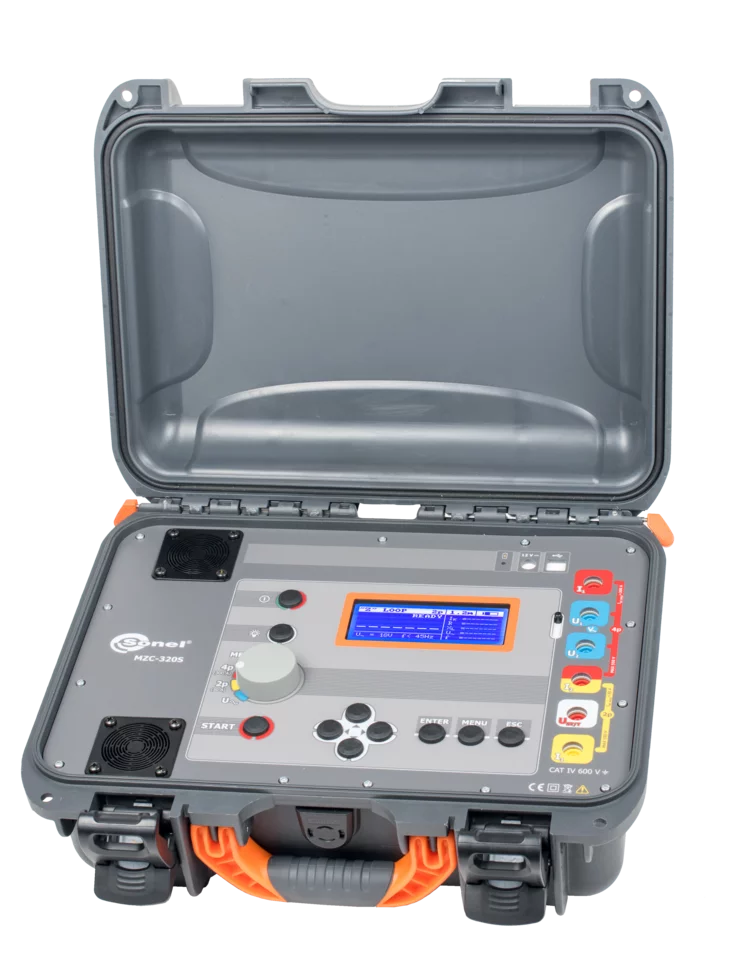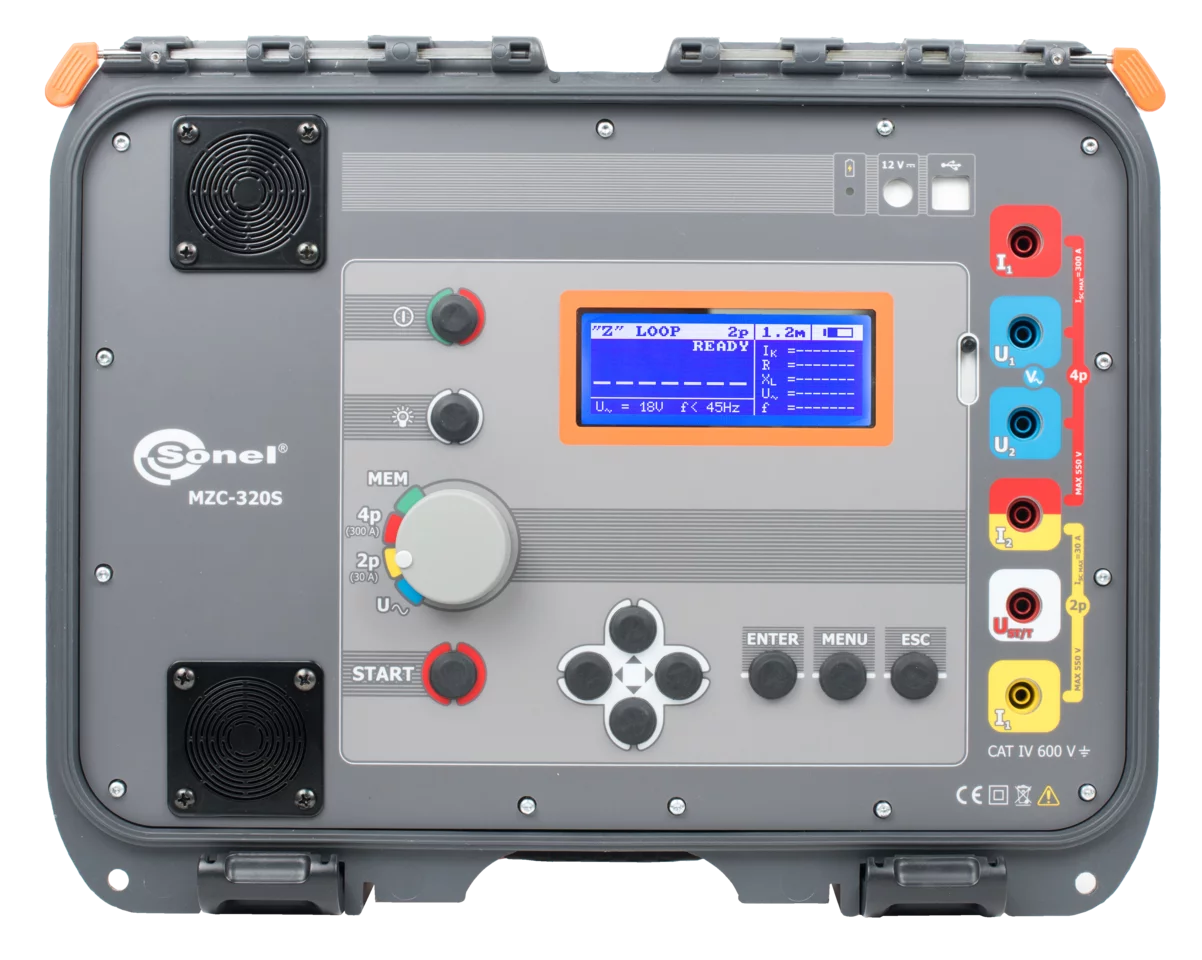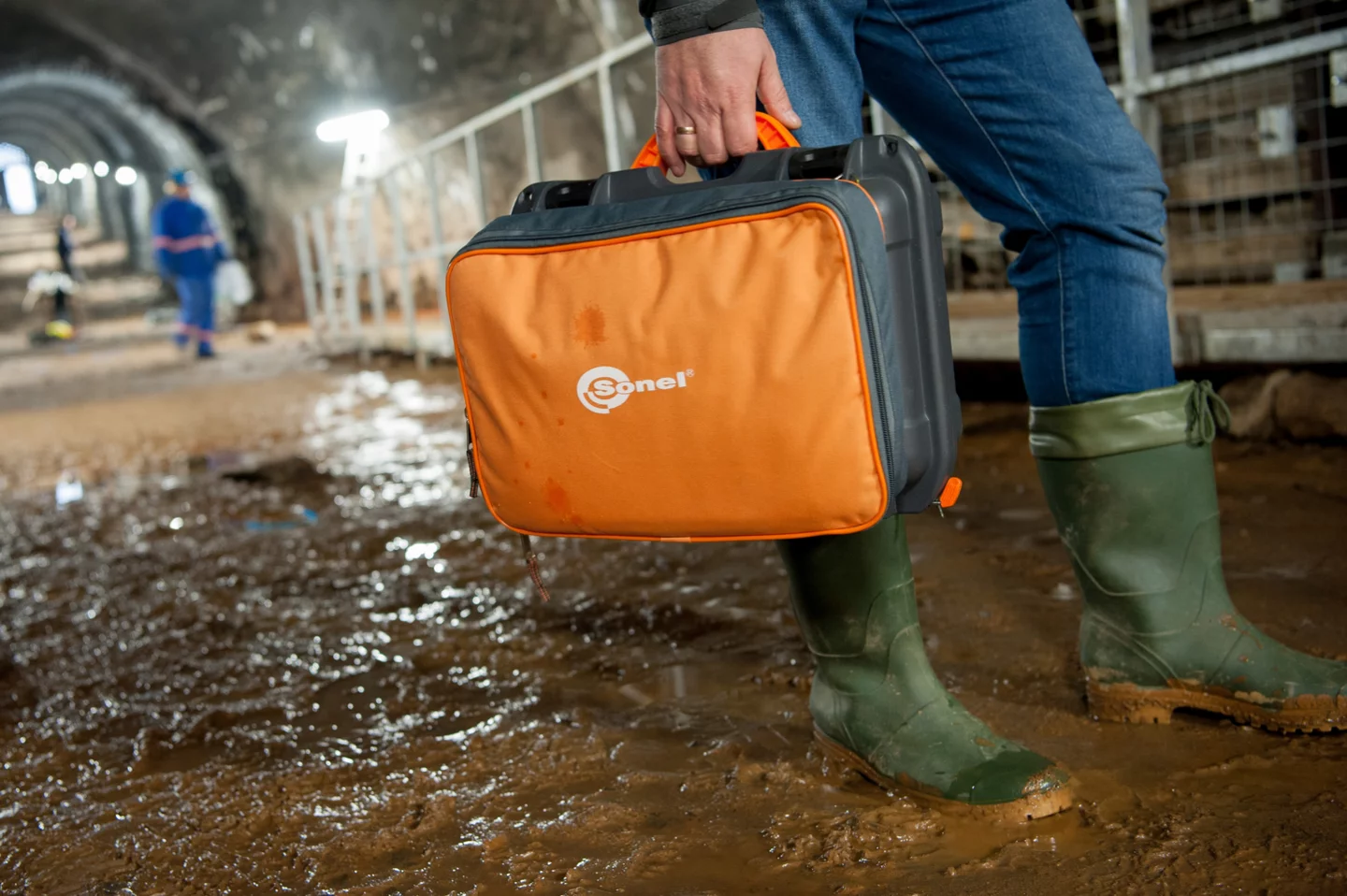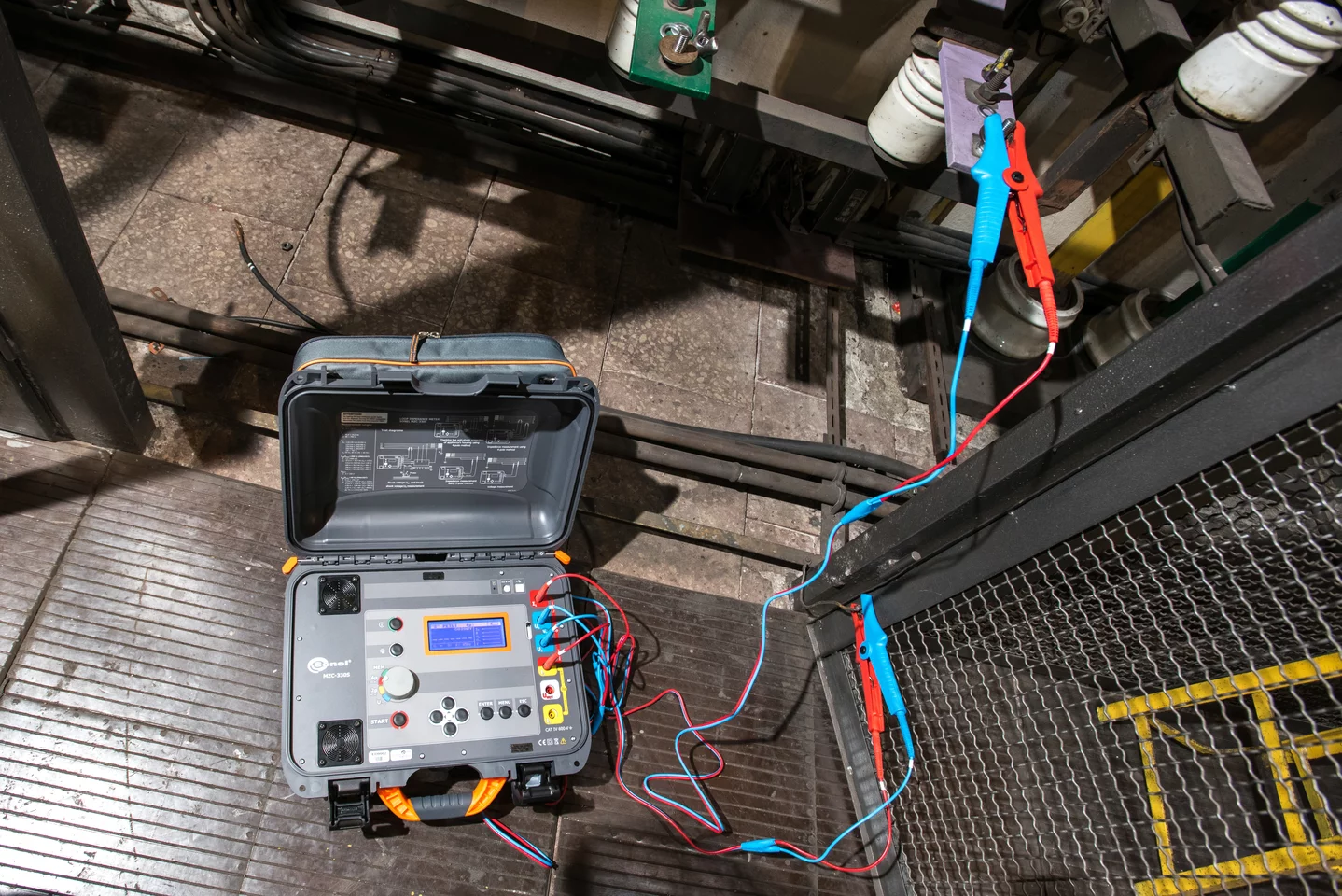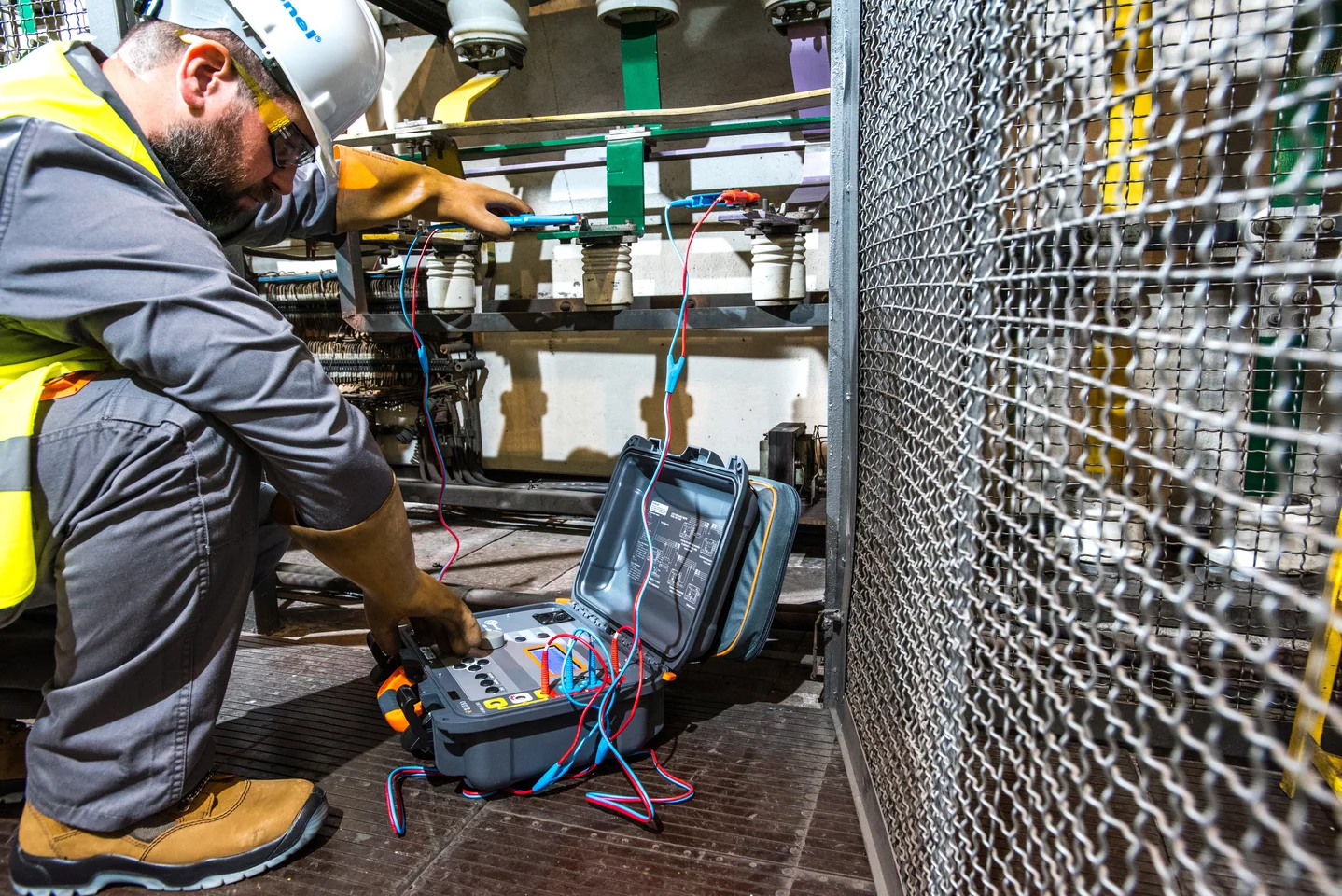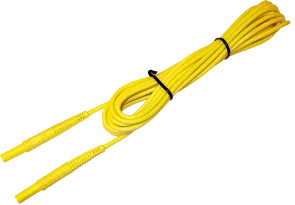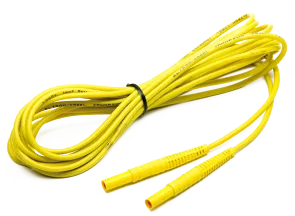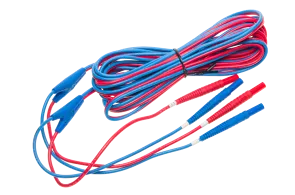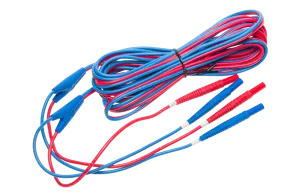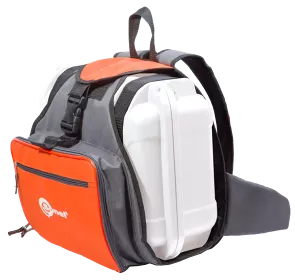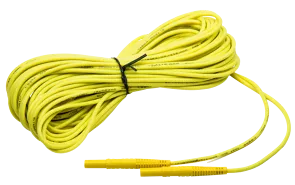Opis
Dane techniczne
Akcesoria w zestawie
Akcesoria dodatkowe
Pliki do pobrania
Waga ciężka w pomiarach silnoprądowych
Jeśli w pracy stawiasz na niezawodne narzędzia, silnoprądowy miernik impedancji pętli zwarcia Sonel MZC-320S to sprawdzony wybór dla Ciebie.
W pracy każdego pomiarowca, elektryka czy technika nieraz zachodzi konieczność wielokrotnego wykonywania pomiaru. W takich sytuacjach wiele urządzeń blokuje się z powodu przegrzania, co jest przyczyną przestojów w pracy. Miernik impedancji pętli zwarcia Sonel MZC-320S został zaprojektowany w taki sposób, aby bezbłędnie sprawdzać się nawet przy wielokrotnych pomiarach. Urządzenie wyróżnia się efektywnym systemem wentylacji, który pozwala zminimalizować czas chłodzenia rezystora zwarciowego. Przyrząd świetnie spisuje się w szeroko pojętej energetyce i pozwala na wielokrotny pomiar impedancji pętli zwarcia bez konieczności długich przestojów w pracy.
Możliwości
- Pomiary bardzo małych impedancji pętli zwarcia (z rozdzielczością 0,1 mΩ) prądem 130 A przy 230 V; maksymalnie 300 A przy 500 V.
- Pomiary prądem rzędu 24 A przy 230 V, maksymalnie 27 A przy 500 V z rozdzielczością 0,01 Ω.
- Pomiary w sieciach o napięciach znamionowych: 110/190 V, 115/200 V, 127/220 V, 220/380 V, 230/400 V, 240/415 V, 290/500 V o częstotliwościach 45...65 Hz.
- Możliwość pomiaru w obwodzie zwarciowym: faza-faza, faza-PE, faza-N.
- Automatyczne rozróżnianie napięcia fazowego i międzyfazowego przy obliczeniach prądu zwarciowego.
- Możliwość zmiany długości przewodów pomiarowych (pomiar metodą 2p).
- Metoda 4p (czteroprzewodowa), brak konieczności kalibracji przewodów (pomiar maksymalnym prądem do 300 A).
- Pomiar i wyświetlanie składowych impedancji pętli zwarcia: rezystancji RS i reaktancji XS.
Cechy dodatkowe
- Zdalne sterowanie przez Wi-Fi: wyzwalanie pomiaru, zapis wyniku do pamięci miernika, pobieranie wyników z pamięci przyrządu.
- Pomiar spodziewanego napięcia dotykowego lub napięcia dotykowego rażeniowego (z rezystorem 1 kΩ).
- Pomiar napięć przemiennych 0...550 V
- Pomiar częstotliwości 45,0...65,0 Hz.
- Pamięć 990 wyników, połączenie z PC przez USB i Bluetooth.
- Zasilanie akumulatorowe.
Tam, gdzie inni nawet nie próbują
W bezpośredniej bliskości transformatora lub w trafostacjach, gdzie w obwodach zastosowano zabezpieczenia wysokoprądowe (wkładki topikowe na kilkaset amperów, wyłączniki silnikowe), można spodziewać się prądów zwarciowych rzędu setek kiloamperów. Wykonanie w takich sieciach pomiaru impedancji pętli zwarcia wiąże się z koniecznością posiadania miernika silnoprądowego umożliwiającego zmierzenie wartości ZS na poziomie pojedynczych miliomów. Dzięki autorskiemu rozwiązaniu technicznemu, przy wykorzystaniu podzespołów niedostępnych w komercyjnej ofercie (unikalny rezystor zwarciowy), Sonel oferuje miernik idealnie sprawdzający się w tak wymagających warunkach.
Pomiary bez kompromisów
Dostępne na rynku mierniki impedancji pętli zwarcia dokonują pomiaru prądem półokresowym, czyli asymetrycznie. Takie rozwiązanie wprowadza stałą przejściową i stałą DC, co nie zawsze skutkuje liniowym zachowaniem się transformatora podczas badań. To z kolei rzutuje na dokładność otrzymanych wyników.
Silnoprądowy przyrząd MZC-320S mierzy prądem symetrycznym, czyli w oparciu o pełny okres - wszystko dzięki zaawansowanej konstrukcji układu pomiarowego, jak również obwodu zwarciowego.
Zastosowanie
Przyrząd znajduje zastosowanie w pomiarach sieci o napięciu znamionowym:
- do 500 V gdzie spodziewany prąd zwarciowy może sięgnąć 69,4 kA według normy PN-EN 61557.
Te parametry czynią miernik idealnym do badań kontrolno-pomiarowych na farmach wiatrowych, szybkiej kolei czy w obiektach podlegających lub stanowiących własność zakładów energetycznych.
Praca zdalna zawsze na topie
Przyrządem można zdalnie sterować - wystarczy, że miernik będzie zalogowany do tej samej sieci Wi-Fi, co urządzenie sterujące, czyli dowolne urządzenie z przeglądarką internetową. Po wywołaniu w przeglądarce wirtualnego panelu operatorskiego użytkownik będzie w stanie uruchomić pomiar z wygodnego dla siebie dystansu, a następnie odczytać wyniki.
Tą samą drogą uzyska dostęp do zapisanych w pamięci wyników pomiarów. Co ważne, będzie mógł je pobrać również w sposób klasyczny, czyli przez łącze USB.
